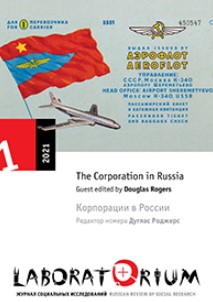Corporation, Education, and Knowing Your Station: Social Estates between a Closed City and an Oxbridge College
Corporation, Education, and Knowing Your Station: Social Estates between a Closed City and an Oxbridge College
Author(s): Dominic MartinSubject(s): Business Economy / Management, Social Philosophy, Higher Education , State/Government and Education, Socio-Economic Research, Sociology of Education
Published by: Центр независимых социологических исследований (ЦНСИ)
Keywords: Distinction; Corporation; Necessity; Education; Estate; Soslovie;
Summary/Abstract: The rise of contemporary corporations in Vladimir Putin’s Russia has coincided with a revival of soslovie, a form of social segmentation based on “estates” rather than on clan, tribal, or class distinctions. Theorizing distinction in societies, Pierre Bourdieu emphasized the importance of the role played by education. He especially underlined distance from economic necessity as being a characteristic ideal of bourgeois educational aspirations. This article examines two contemporary perspectives on education, both linked by a Russian energy corporation. One is focused on an elite family from Russia based in England, the other on the children of a renascent Old Orthodox group resident in a former “closed” city in Primorski Krai. Deploying theoretical apparatus advanced by Bourdieu, I identify the continuing application of the concept of estates—soslovie—as a means of ordering various functions and strata in society and especially as an engine driving aspects of choice and distinction in the education of young people coming of age at the social and geographic extremities of the aura of a global corporation. In both contexts, a sense of belonging to an estate seems to be at the heart of what is being inculcated. An autoethnographic perspective links an ancient Oxbridge college with the former closed military-industrial city in Russia’s Pacific, and the new corporate power elite is imbricated in a global assemblage with a marginal dissenting religious community. Obdurate cultural legacies from Soviet times play a role alongside more recently acquired bourgeois aspirations in this assemblage.
Journal: Laboratorium. Журнал социальных исследований
- Issue Year: 13/2021
- Issue No: 1
- Page Range: 104-126
- Page Count: 23
- Language: English

